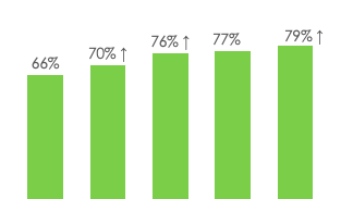Port Washington, N.Y. – Apple will enjoy great success in the U.S. with its next iPhone, but it will be much harder this time around to “achieve the equivalent blowout sales success that the iPhone 4s enjoyed,” NPD Group said.
The “inevitability of easy market share gains in the U.S. is not quite so apparent this time around as it has been in the past,” said Stephen Baker, NPD Group’s telecom industry analyst.
The reasons include flat post-paid smartphone sales preceding this year’s iPhone launch compared to significant growth for previous iPhones. Another reason is that “there is no clear number 3 [operating system] player to steal market share from,” Baker said.
“iOS and Android have such dominant share that, as with brands, growing faster than the market will increasingly require taking share from a much stronger competitor, as opposed to merely vanquishing those who are already falling by the wayside,” he explained.
Likewise, Apple faces a stronger competitor in Samsung this time around, he said. “The iPhone, as well as Samsung’s phones, have continued to gain brand share over the past year, and their joint share now exceeds 50 percent, which is likely to make it more difficult for Apple to easily take share from weakened competitors because many of the easy share gains have already been accomplished.”
In addition, last year’s launch of the iPhone 4s launch could take advantage of availability for the first time through Verizon and Sprint, reaching a “huge untapped base of potential subscribers” at Verizon and Sprint. “This year’s introduction faces the specter of a much smaller base of previously unavailable consumers, based on their carrier preferences,” Baker explained.
As for postpaid-smartphone maturity, Baker pointed out that that total smartphone growth in the U.S. slipped to 9 percent in the second quarter, and that all of that growth was due to “the increased prevalence of pre-paid devices in the market.”
“Apple will have a highly successful launch,” Baker concluded, “but the inevitability of easy market share gains in the U.S. is not quite so apparent this time around as it has been in the past.”













